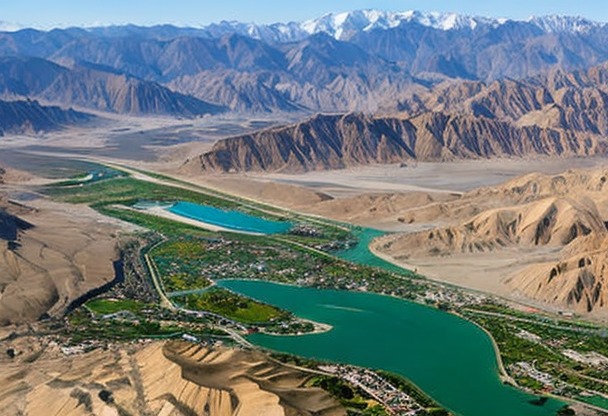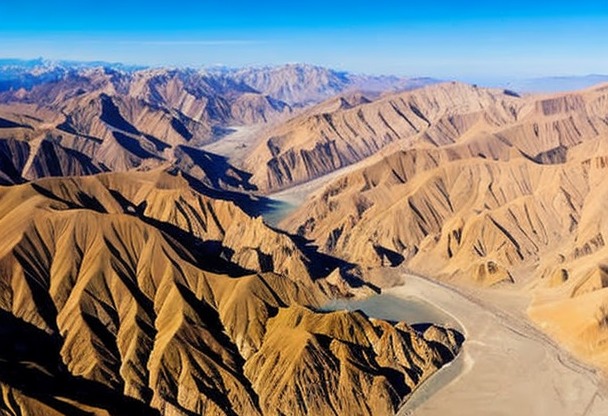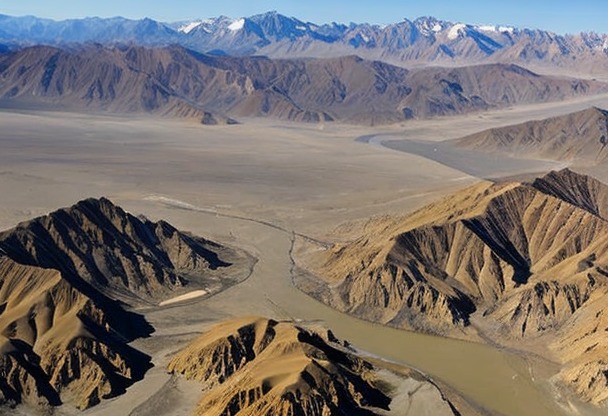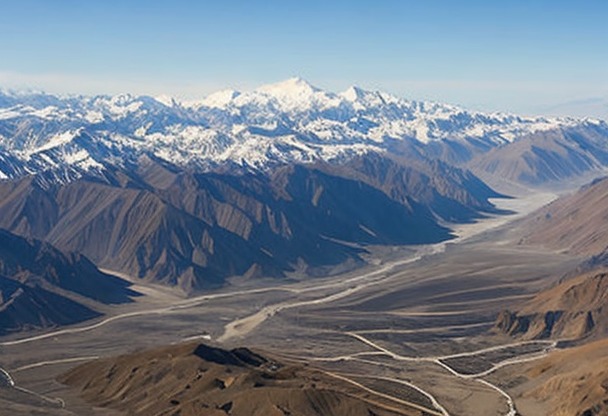Best time to travel to Afghanistan
Choosing the right time for your trip to Afghanistan can make all the difference. It's important to consider weather elements, seasonal events and busy tourist periods to maximize your travel experience.

Location
Climate
Low and high season periods
As with most destinations, tourism in Afghanistan is divided into low and high seasons. Here's what you need to know about these different periods:Low season (November to February)
The low season in Afghanistan is between November and February, due to the harsh climate during this period. Temperatures can drop to -15°C, and some mountain regions are inaccessible due to snow. However, if you're a keen skier, the Afghan winter can be a unique and rewarding experience.High season (March to October)
The high season in Afghanistan runs from March to October, with milder temperatures and dry, sunny weather. This period is ideal for visiting the country's many historical and cultural sites, as well as taking part in the various cultural events held throughout the year. However, it's important to note that flight and accommodation prices can be higher during this period.National holidays and events
Afghanistan celebrates a number of national holidays and events throughout the year. Here are some of the main public holidays to consider when planning your trip:- Nouruz (March 21) The Afghan New Year, a celebration of spring and rebirth. Festivities include traditional dances, musical performances and special dishes.
- Independence Day (August 19) Afghanistan Day: commemoration of Afghanistan's independence from Britain in 1919. Military parades, official speeches and fireworks are organized across the country.
- Eid el-Fitr (date varies) Ramadan: marks the end of the holy month of Ramadan for Muslims. Families gather to share festive meals, and gifts are given to children.
- Eid al-Adha (date varies) Feast of the Sacrifice: also known as the Feast of the Sacrifice, it commemorates the sacrifice of Abraham. Families sacrifice an animal and share the meat with the less fortunate.
Major cultural events
Afghanistan has a rich and diverse culture, which is reflected in the many events and festivals organized throughout the year. Here are just a few of the major cultural events you can attend during your stay in Afghanistan:- Kite Festival (Buzkashi) This traditional Afghan sport involves catching a kite in mid-flight on horseback. Competitions are organized all over the country, especially during the winter months.
- Poetry festival (Mushaira) Poetry evenings: poetry evenings are organized regularly throughout the country, enabling literature lovers to share their works and discuss their passion.
- Music festival (Jahan-e-Khusrau) This annual festival celebrates Sufi music and features performances by local and international musicians.
- Kabul Book Fair Afghanistan: this annual event brings together writers, publishers and readers from all over the world to promote Afghan literature and support the country's book industry.
Insurance

Your credit card does not cover you in all situations, that is whyIt is essential to take out insurance before you leave to avoid any unpleasant surprises. If you need to see a doctor or be hospitalized, in some countries, medical costs are very high and you will then find yourself having to pay several thousand euros.
Our partner Chapka Insurance proposes the contract CAP ASSISTANCE 24/24 with many essential guarantees.


Flights

Your flight has been cancelled or delayed ?
You may be eligible for a compensation of up to €600 ! For this, lawyers are responsible for handling your claim with the airline and are only paid when the reimbursement is effective.
In conclusion, no financial risk for you, only advantages!
Statistics on immigration to Afghanistan
As mentioned above, Afghanistan has faced a series of political and military crises over the past few decades. These challenges have resulted in considerable migratory flows, both within and outside the country. According to data from the International Organization for Migration (IOM), an estimated 2.7 million Afghans currently live outside their country of origin. The main destinations for Afghan migrants include neighboring countries such as Pakistan, Iran and Turkeyas well as more distant countries such as Germany and the United States.Internally displaced Afghans
In addition to those who have left the country, it is estimated that nearly 4 million people are internally displaced within Afghanistan as a result of armed conflict and violence. These people face considerable challenges in terms of access to basic services, education and economic opportunities.Most popular visas in Afghanistan
The granting of visas is a key component of Afghan migration policy. The different categories of visa available to foreign nationals wishing to enter Afghanistan include tourist, business, work and family visas. According to data from the Afghan Ministry of Foreign Affairs, the most popular visas are the following:- Business Visa
- Work visa
- Tourist visa
- Family visit visa
Afghan asylum applications abroad
Due to the precarious situations faced by many people in Afghanistan, a large number of Afghans are seeking refugee status or asylum in other countries. In 2020, Afghans were the second largest national group among asylum seekers in the European Union, behind Syrians.International tourism figures for Afghanistan
Despite the challenges facing the country, Afghanistan boasts a rich cultural and historical heritage that attracts international tourists. However, the number of foreign visitors remains relatively low due to security concerns and political instability. According to data from the Afghan Ministry of Tourism, the number of international tourists visiting Afghanistan was around 20,000 in 2019.Main tourist countries of origin
The main countries of origin of tourists visiting Afghanistan include :Popular tourist attractions
Afghanistan is home to several historical and natural sites of interest to visitors, such as :- The historic town of Bamiyan, with its famous Buddhist statues destroyed by the Taliban in 2001
- Band-e Amir National Park, famous for its six turquoise lakes surrounded by limestone cliffs
- Herat's Blue Mosque, an architectural masterpiece dating from the 15th century
- The minaret and archaeological remains of Jam, a UNESCO World Heritage site


